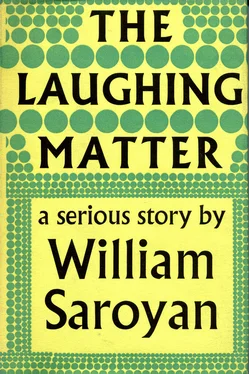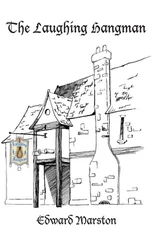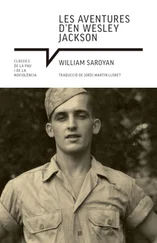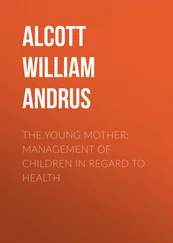He gave the man’s name.
“Oh,” the girl said. “Just a moment.” She went back into the apartment, and after a moment returned to the door. She had a copy of the town paper folded to something for him to read. He took the paper and read the item quickly.
“The poor man,” the girl said. “Did you know him?”
“Yes,” he said. He handed the paper back to the girl.
“We just moved in this morning,” the girl said. “They found his body last night. He’d been dead for some time, though. He must have been sick or crazy or something. The article says he was brilliant and had everything to live for. He left no note. I hope he wasn’t related to you.”
He went down to the street, around the corner to his car, and drove to the house they had been trying to buy. He saw it when he turned the corner into their street. It wasn’t much to see. At the door were four rolled newspapers, and the mailbox was full of mail. He unlocked the door and went in. In the hall he saw Eva’s stuffed elephant, which she no longer cared for especially, and Red’s two-wheeler, from which he had taken so many spills, getting up bruised and infuriated every time, but refusing to stop riding it. That was long ago, of course. Now, it was too small for him and Eva was trying to learn to ride it. He went through each room of the house, then went out and locked the door behind him. He was about to go when he reached into the mailbox and removed everything in it. They were bills mainly, but he tore open one that was a letter. It was on six sheets of lined paper, without heading or salutation.
“A man had a friend,” he read. “Late one night his friend’s wife telephoned him to say that she had taken an overdose of sleeping pills. He went there and she said she had wanted to die but didn’t want to any more. She couldn’t call a doctor because she didn’t want anybody to know. Somehow she came around all right. She made him promise not to let her husband know. She said she was all right now. Several nights later, though, she called again. He decided he must telephone his friend, but she wept and begged him not to ruin the lives of her children. He couldn’t understand her. He wanted to help his friend, but he was afraid it wouldn’t help his friend to be told. He couldn’t sleep, though, and the next day telephoned to find out if she was all right, if his friend’s children were all right. She said he must go to her. They talked for hours while the children went off to the circus with the neighbor girl. A week later the neighbor girl took the children on a picnic. When the neighbor girl brought them home after the picnic the boy asked him why he didn’t stay in his own house. He went home, packed a suitcase, and went to another town, so that she could not reach him. After a month he returned to his home, and several days later she telephoned from another city and said everything was all right again. He asked her to please take care of herself, take care of her family. He decided to return to his birthplace. He was packed and ready to take the train when he believed he must telephone her and urge her to tell her husband about herself. The number didn’t answer. When he got home to pick up his bags his friend telephoned. He had many things to tell his friend, but he didn’t know how to begin to tell him, and his friend didn’t want to hear him say anything. He decided to try to tell the things in writing, with decent love for her, for his friend, for the children. He wrote and wished them all decent life, decent love, decent truth, decent hope.”
He read the letter slowly, then got into his car and sat there almost an hour, unable even to turn the ignition key and start the motor. He did not read the letter a second time, but remembered everything in it. At last he got out of the car and went back into the house, to the telephone.
Dr. Altoun came on the line.
“Listen,” he said in their language. “I am calling from my own home. I am leaving immediately in my brother’s car. It is a drive of four hours. I wish to go to the inquiry.”
“We will go in the morning,” Dr. Altoun said.
“It is almost ten now,” he said. “I will be there at two.”
“I will be waiting,” the doctor said.
“I wish to ask,” he said, “how is my son?”
“He is well.”
“May I speak to him, please?”
“He is asleep,” the man said. “Shall I wake him up?”
“No,” he said. “Let my son sleep. How is my daughter?”
“She is also well.”
“Thank you.”
“There will be little difficulty at the inquiry,” the man said. “You must not believe it was not an accident.”
“I will be there at two,” he said. “I must see the faces of my children asleep.”
“Yes,” the man said.
He left the house, got into the car, and drove off. He was driving swiftly down the summit of Pacheco Pass toward Los Banos when the front inside tire exploded. The car plunged off the highway, struck and smashed the curved plate fence, dived, fell, struck the mountainside, fell again, and then stopped.
The man’s head and face were torn and smashed, and he was not quite conscious, but he moved to go, to get to the inquiry in the morning. He moved on his belly almost three inches, then came to metal. He became conscious enough to know that he was trapped under the car, broken and bleeding late at night, far from the highway. There would certainly be no one to come by and notice the small spot of wreckage a quarter of a mile down the mountainside. He tried to move again, to get out, to pick up and go, to get to Red’s sleeping face, to Eva’s sleeping face, but he couldn’t go, and then something began to laugh. He had no way of knowing if it was himself, his life, his father’s life, his wife Swan’s life, his brother’s life, the smashed junk of the automobile, or the smashed junk of matter itself laughing.
Whatever it was, the laughter took the form and meaning of fire. He could not see it. He could see nothing, but he could smell it, and then he heard it, first as an explosion, as if lungs needing air badly had suddenly reached air, then softly, as a hum. And finally he felt the laughter. It was an accident, though. It was one accident after another, ending in laughter.
“Swan?” he said. “Red? Eva?”
In the house on the vineyard in Clovis, five hours later, Dr. Altoun, asleep on the sofa in the parlor, sat up suddenly, for he heard sobbing.
He got up and went in the dark to the door of the boy’s room.
The boy was crying in his sleep. Dr. Altoun turned on the hall light and listened.
“Papa?” the boy said. “Mama?”
The boy sobbed again, then fell back to sleep. The man looked at his watch and wondered what had delayed the boy’s father. He went back to the sofa, but instead of stretching out on it, he sat there to wait.
William Saroyan(1908–1981) was an internationally renowned Armenian American writer, playwright, and humanitarian. He achieved great popularity in the thirties, forties, and fifties through his hundreds of short stories, plays, novels, memoirs, and essays. In 1939, Saroyan was the first American writer to win both the New York Drama Critics’ Circle Award and the Pulitzer Prize for his play The Time of Your Life . He famously refused to accept the Pulitzer Prize on the grounds that “Commerce should not patronize art.” He died near his hometown of Fresno at the age of seventy–two.












